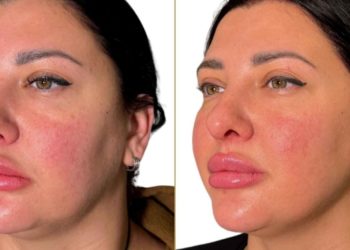In an era where advances in medicine and technology have extended life expectancmaintain youthful vitalityy, a growing number of people are seeking ways to not just live longer, but to live better, healthier even.
The desire to maintain youthful vitality, mental sharpness, and physical fitness well into later years is driving the quest for health optimization. It’s not just about adding years to life but about adding life to those years.
Ageing: A Natural Process, but Not the Enemy
Ageing is as inevitable as the passage of time.
Every living being experiences it – our cells, tissues, and organs all undergo gradual decline. This decline, though universal, is not uniform.
As Jabe Brown from Melbourne Functional Medicine eloquently puts it, “Ageing is the natural progression of life, but how we age can differ dramatically from one person to another. Our lifestyle choices, environment, genetics and even our mindset play big roles in this process.” For more detailed guidance, you can explore his article on health optimization here: „What is health optimisation“.
Biological vs. Chronological Age
Chronological age is simply the count of years since birth – straightforward, irreversible. Biological age, however, tells a different story. It reflects the wear and tear on our bodies, influenced by factors like genetics, lifestyle, diet, stress, and environmental toxins.
Two people of the same chronological age could have vastly different biological ages.
One might enjoy the vitality of someone years younger, while the other could suffer ailments typically seen in much older individuals.
| Chronological Age | Biological Age |
| Fixed and irreversible | Flexible, can be influenced by lifestyle |
| Measured in years | Measured in physiological markers |
| Common for everyone | Varies widely among individuals |
The Hallmarks of our Biological Age
As we age, several biological processes begin to malfunction, accelerating decline and increasing disease risk.
mTOR Activation
mTOR (mechanistic target of rapamycin) is a protein that regulates cell growth and metabolism. While improtant for development and repair, unchecked mTOR activation can speed up ageing and heighten disease risk. It’s a balancing act – too little mTOR activity and cells may fail to repair properly; too much, and they may age prematurely.
Sedentary Lifestyles
Inactivity is a significant contributor to ageing; especially since the onset of more technological advancements and less blue collar jobs.
A sedentary lifestyle can lead to a real cascade of negative effects – poor metabolic health, weakened cardiovascular function, and cognitive decline. Regular physical activity is vital to maintain not just muscle mass, but also metabolic and brain functions.
Poor Diet & Nutrition
Diets high in processed foods and low in nutrients can trigger what’s known as “inflammageing,” a chronic state of inflammation that accelerates ageing. A diet rich in whole foods, antioxidants, and healthy fats can combat this inflammation, potentially slowing the ageing process.
Chronic Stress and Inflammation
Prolonged stress wreaks havoc on the endocrine system, amplifying inflammation and accelerating cellular ageing. Reducing stress through mindfulness, physical activity, and proper sleep is a big factor for slowing the ageing process.
Healthy lifestyle choices offset genetics
A recent study involving over 350,000 participants of European ancestry highlights the profound impact of lifestyle on longevity, even in the face of genetic predispositions. The study grouped participants into three categories based on genetic risk and lifestyle habits. Those with an unfavorable lifestyle had a 2.04 times higher risk of death compared to those with a favorable lifestyle, regardless of their genetic predisposition.
This suggests that while genetics play a role, our lifestyle choices – such as regular exercise, a nutrient dense diet, not smoking, and getting enough sleep – can significantly offset genetic factors.
How to start to optimize your health?
Health optimization involves a multifaceted approach that includes functional testing, personalized nutrition, targeted supplementation, regular exercise, and proper sleep.
Functional testing can provide insights into your biological age, genetic profile, and specific nutritional needs. Tests like DNA methylation analysis, food allergy screenings, and hormonal profiles can help tailor a health plan that addresses your unique requirements.
Nutrition
Nutrition is not a one-size-fits-all solution. A diet that works for one person may not be suitable for another. By understanding your genetic profile, you can make dietary choices that best support your health and longevity.
Supplementation
Certain supplements may help slow the ageing process. NAD+, NR, and NMN are known to support cellular energy production and repair. Vitamins K and D, lutein, and resveratrol are also beneficial.
Exercise
Exercise acts as an epigenetic adaptogen, influencing gene expression in ways that promote health and longevity. Regular physical activity can help maintain a youthful biological age, even as the years advance.
Sleep: Mastering the Internal Clock
Sleep is another key factor for health optimization. Understanding chronobiology – the study of our internal clocks – can help align sleep patterns with our natural rhythms, improving overall health and slowing the ageing process.
As Jabe Brown adds, “Optimizing your health is not about adding years to your life, but about adding life to your years.”
Take control of your health
Health optimization is about making intentional choices that align with your unique genetic makeup and lifestyle needs.
By addressing key factors like chronic inflammation, stress, diet, and physical activity, you can influence your biological age, extend your healthspan, and add to your quality of life. This process requires ongoing attention and adaptation, as your body and environment are constantly changing. With the right approach, you can age not only gracefully but also with vitality and strength, taking control of your health every step of the way.


![7 Best POS Software in the UK [2026 Edition]](https://todaynews.co.uk/wp-content/uploads/2026/02/7-Best-POS-Software-in-the-UK-2026-Edition-360x180.png)








































































